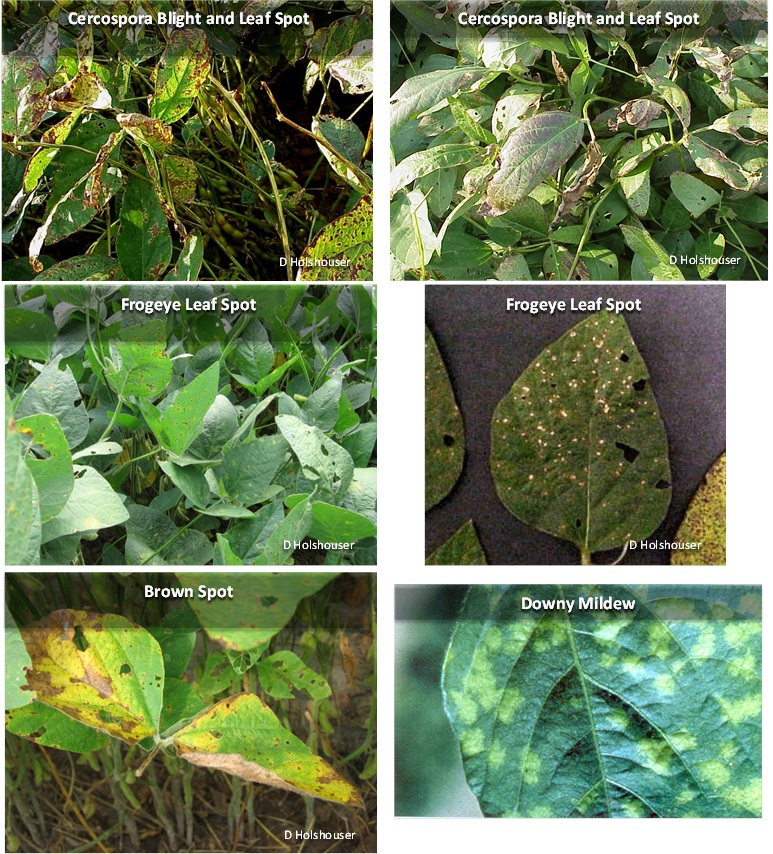September is a great time to evaluate your crop and the performance of varieties that you chose. In addition to general growth and health of the crop, take some time to determine if you have any of the below diseases. If so, you could be losing some yield. If you sprayed with a fungicide and still have disease, reconsider the product and rate used and the time that the fungicide was applied. Keep in mind the weather conditions when the application was made and the conditions 2 to 3 weeks after or before the product was applied. Cool temperatures (70’s) and high relative humidity (>95% for 12 hours or more) will usually increase disease incidence.
Another caution is to never diagnose a specific disease on the plant without verifying it with a person trained to identify plant pathogens. Only when the reproductive structures are found on the leaf can a disease be confirmed. Many things will cause look-alike symptoms. Be sure before you cast the blame. There are more diseases than just the ones shown below, but these are the most common. Brown spot is normally found in the lower part of the crop canopy (the lower leaves), Cercospora blight and leaf spot will be found throughout the canopy, and the frogeye leaf spot and downy mildew tend to be found in the upper part of the canopy.

Pingback: Is it too late to apply foliar fungicides in soybean? | Virginia Ag Pest and Crop Advisory